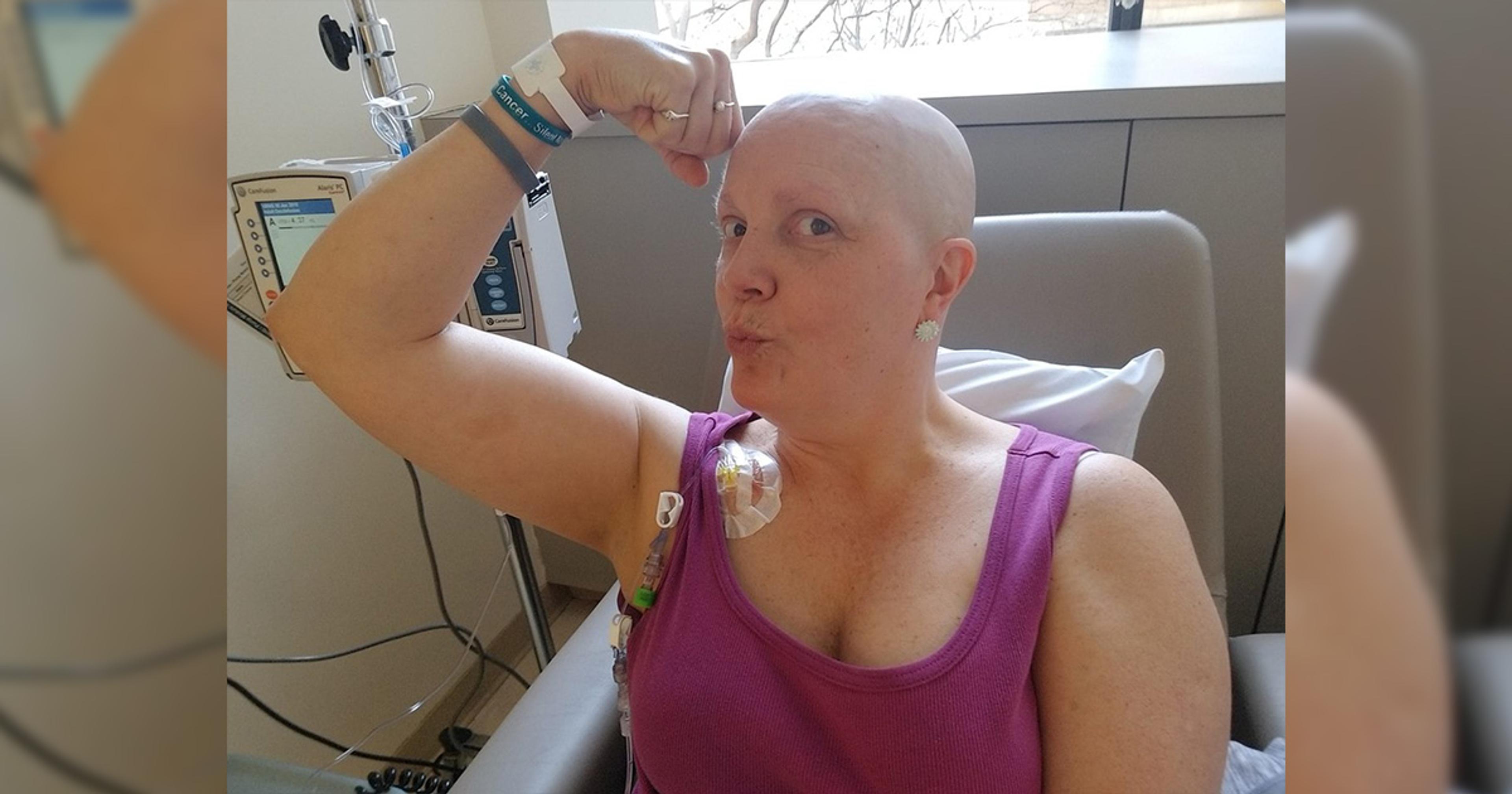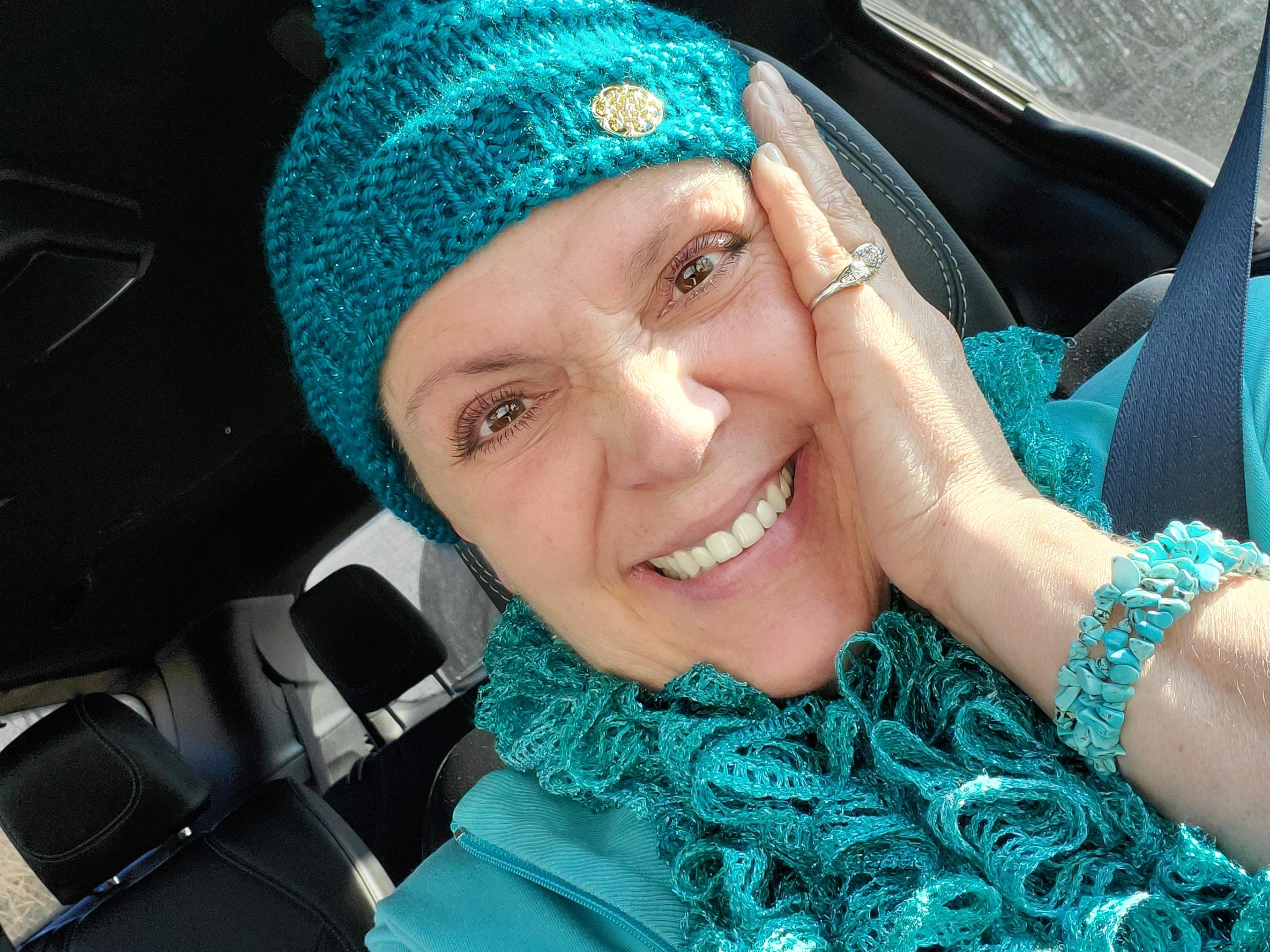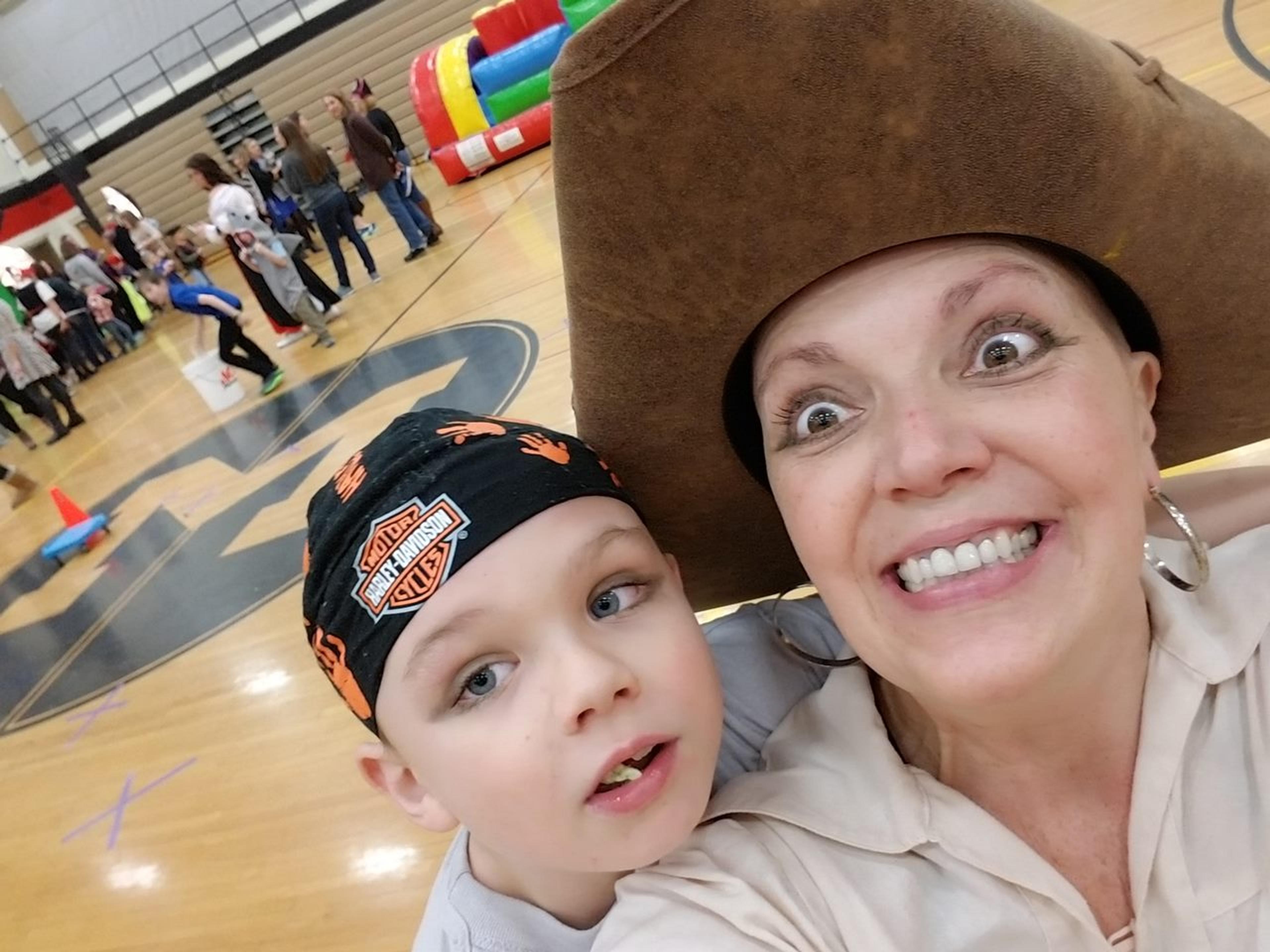‘Faith, Prayer and Positivity:’ Marshall Woman Doesn’t Allow Ovarian Cancer Diagnosis to Bring Her Down

Jake Newby
| 5 min read
Jake Newby is a brand journalist for Blue Cross Blue Shield of Michigan.

Feel it, deal with it, let it go. That’s 54-year-old ovarian cancer patient Robin Kingsbury's mantra. Over the last six years, the Lansing native and Marshall resident hasn’t just met her grim medical diagnoses with a brave face – she’s met them with laughter, and a sense of humor.
“After I was diagnosed, the next day I went and saw an oncologist out there in Coldwater and she said, ‘Well, I need to do this exam,’” and I’m a smart aleck, I deal with these with laughter, and irreverence,” Kingsbury said. “Sometimes inappropriate, maybe. So, the nurse comes in and says, ‘Are you ready?’ and I said, from the looks of what’s on that cart, I think you need to kiss me first.’”
Kingsbury has had chronic shingles for most of her life – a condition typically found in older adults. Shingles outbreaks can trigger a painful rash or small blisters on an affected area of the skin for those who have it. For Kingsbury, toward the end of 2017, her case of the shingles triggered persistent, painful swelling in her right inguinal lymph nodes – the lymph nodes in the groin area. Kingsbury opted to have it surgically removed.

Not long after her procedure, a follow-up biopsy revealed stage IVB ovarian cancer. Moments after receiving the type of news that no one ever wants to hear, stoically, Kingsbury asked, ‘Now what?’”
Feel it, deal with it, let it go. Kingsbury was on to the “deal with it,” stage at this point, and that’s exactly what she and her family did. At the end of December, she underwent a seven-hour hysterectomy. During ovarian cancer surgery, the uterus and typically other female reproductive organs, are removed to stop the spread of cancer. After that, it’s on to chemotherapy.
Disoriented after a debilitating surgery followed by her first round of chemo, Kingsbury was characteristically defiant.
“I don’t allow anyone to feel sorry for me, because I don’t feel sorry for myself,” she said.
Just as her first round of chemo got underway, Kingsbury had an idea to take two sets of family photos for Christmas – one with hair and one without. Kingsbury shaved her head after the initial photoshoot and in a show of solidarity, her sons did the same. Kingsbury wasn’t going to let her diagnosis derail the holiday season. Instead, she had some fun with it. Feel it, deal with it, let it go. That holiday season she truly got to let her physical and emotional woes go.


The progression of Kingsbury’s cancer and her advice for others
A short remission in the middle of 2018 was just that; short. The last few years for Kingsbury have been very up and down. For every positive visit with her primary care physician (PCP), there’s a negative one, highlighting a new area of her body affected by the cancer.
“In (2022) in March, they informed me that I was platinum resistant, which means there’s really nothing new under the sun for me,” Kingsbury said.
Ovarian cancer patients are classified as platinum resistant when they do not respond to chemo, or they relapse within six months of treatment.
“After you complete the first line of platinum-based chemotherapy, you just keep going,” Kingsbury explained. “It just keeps going and going, and it doesn’t help. You have low response rates.”
The median survival rate of platinum-resistant ovarian cancer is 12 months, Kingsbury has surpassed that median by about 6 months but she wouldn’t necessarily say she’s on the up and up. After starting yet another round of chemo in the summer of this year, complications led to a biopsy, which revealed colonic metastasis from ovarian cancer. The cancer had spread to her rectum.

“It found another place to spread to, kind of gnarly, but just deal with it,” Kingsbury said. “Faith, prayer, and positivity in that order. That’s how I get through this.”
Nothing is scheduled yet, but she expects to undergo a proctocolectomy in the near future. In trademark Kingsbury fashion – and with her smart-alecky, sometimes crass sense of humor in full effect – she said she’s told close friends and family members that she’s looking forward to at least one silver lining related to her upcoming procedure.

“I say, ‘Well, I have a mass in my rectum, it is ovarian cancer in my rectum,’ and then I tell them, ‘I’m finally gonna have a Barbie butt,’” she said.
Kingsbury’s innate ability to shake off and even laugh defiantly at bad news doesn’t mean she doesn’t care about her health. The “deal with it,” part of her personal mantra doesn’t just refer to her attitude; it refers to her willingness to deal with address every medical journey she’s traveled the past six years. She stays ahead of every doctor’s visit, every procedure, and every responsibility required of her behind closed doors, in terms of medication and lifestyle guidance. She’s dealt with it all and she will continue to do so. Becoming her own self-advocate has helped her acquire the best possible treatment at every turn.
“There are symptoms of ovarian cancer that we as women have to be aware of, because ovarian cancer is known as the silent killer,” Kingsbury said. “That’s why you have to be your own advocate when you go into the doctor’s office. Only 20% of ovarian cancer cases are found early enough to be treated properly. Only 20% (are diagnosed in stage I). So, there’s recurring, persistent abdominal pain. Bloating. Indigestion, gas, nausea, heartburn. Frequent urination, vaginal bleeding. All sorts of different things. You have to be aware of these symptoms. And if they are persistent, see your doctor and demand to get tested.”

Ovarian cancer testing usually consists of a CT scan, a transvaginal ultrasound, or both.
“CT scans, as most people know, aren’t an annual thing. And they’re expensive. So, your doctor has to have a reason to send you for a CT scan or a transvaginal ultrasound,” Kingsbury said. “And they’ll have a reason if you are vigilant about your own body. Know the signs and symptoms and be your own best advocate.”
Keep reading:
- ‘We Don’t Take Anything For Granted:’ Middleville Child’s Triumph Over Cancer Strengthens Family's Bond
- Muskegon Man Finds 'Purpose’ as Suicide Prevention Facilitator Following Suicide Attempt
- How to Avoid Common Forms of Health Care Fraud
Photo credit: Robin Kingsbury





